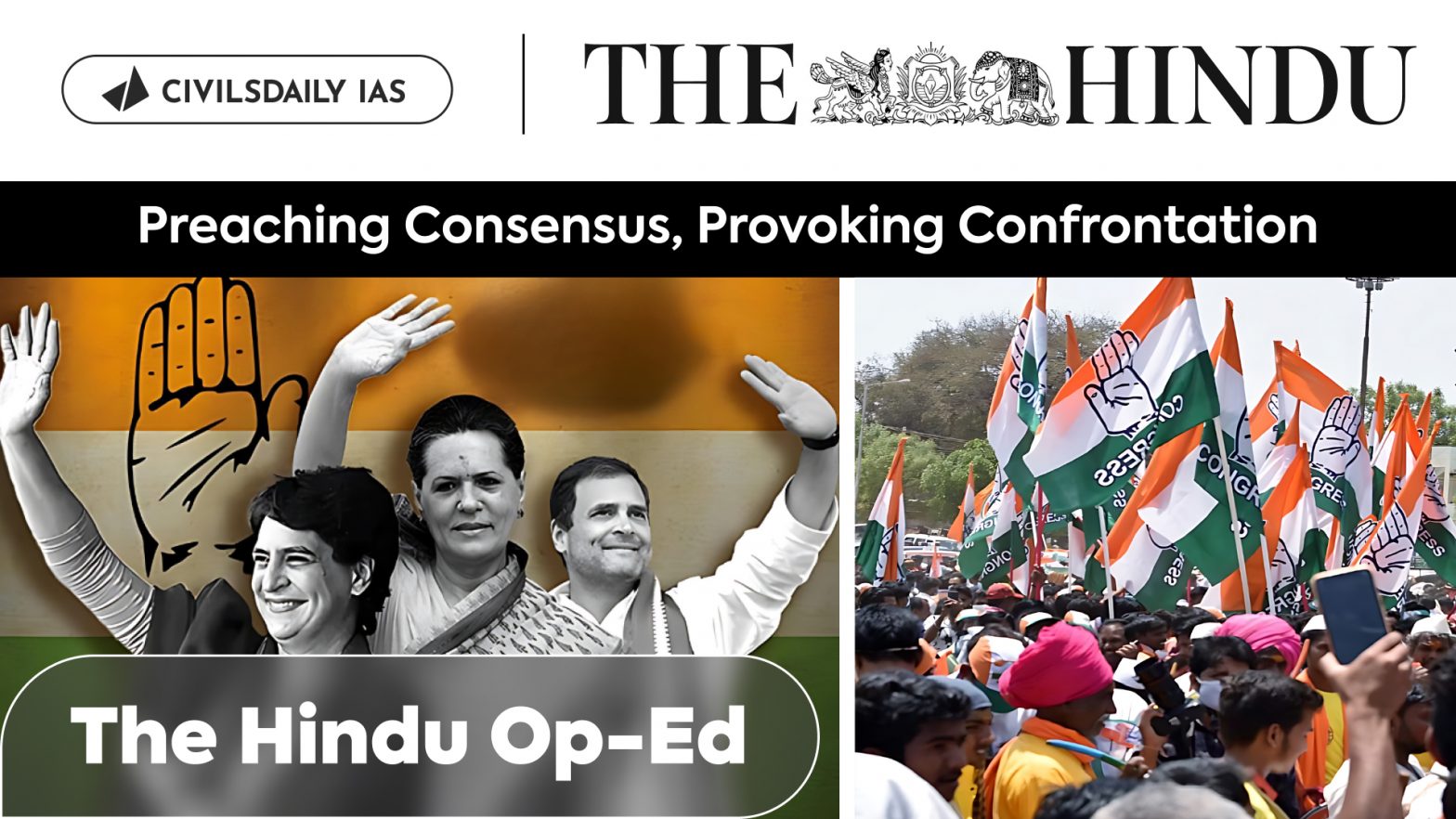| PYQ Relevance: Q Simultaneous election to the Lok Sabha and the State Assemblies will limit the amount of time and money spent in electioneering but it will reduce the government’s accountability to the people’ Discuss. (UPSC IAS/2017) Q Individual Parliamentarian’s role as the national lawmaker is on a decline, which in turn, has adversely impacted the quality of debates and their outcome. Discuss. (UPSC IAS/2019) |
Mentors’ comment: In India, the opposition plays a crucial role in democracy by providing checks and balances to the ruling government. It holds the government accountable, scrutinizes policies, ensures diverse perspectives are considered, and represents alternative viewpoints to foster balanced decision-making. Through debates, criticism, and proposing alternative policies, the opposition helps uphold democratic principles, safeguard citizen interests, and contribute to the overall governance and development of the country.
Let’s learn!
Why in the News?
On June 4, 2024, the electorate decisively delivered its verdict, marking a significant personal, political, and moral setback for the Prime Minister, who had portrayed himself with near-divine status throughout the campaign.
The Fading of Accommodation
- Confrontational Approach: Despite the clear message from the voters, Prime Minister Modi continues with his confrontational approach, ignoring the need for consensus.
- Unchanged Attitude: The initial days of the 18th Lok Sabha showed no signs of a changed attitude, with hopes for mutual respect and accommodation being dashed.
- Speaker and Deputy Speaker Controversy: The INDIA bloc parties had agreed to support the government’s choice for Speaker but expected the Deputy Speaker position to go to the Opposition, a request denied by the regime.
- Diversion Tactics: The Prime Minister and his party dredged up the Emergency, diverting attention from current constitutional and institutional issues.
Issues That Need Extensive Debate
- Suspension of MPs: The unprecedented suspension of 146 MPs demanding a discussion on Parliament’s security breach was a tactic to pass criminal justice laws without debate.
- Concerns over New Laws: Legal experts have raised concerns about these criminal justice laws, suggesting they should undergo fuller parliamentary scrutiny.
- Environmental and Educational Issues: Amendments to forest conservation and biological diversity laws were pushed through without debate, risking ecological and humanitarian disasters. The NEET scandal, affecting lakhs of students, was downplayed by the Education Minister, with the Prime Minister remaining silent.
- Violence against Minorities: Increasing violence against minorities, with allegations of arbitrary demolitions and collective punishment in BJP-ruled states, points to a broader issue of human rights and the rule of law. The communal rhetoric during elections and subsequent actions undermines social harmony and requires careful deliberation on safeguarding minority rights and upholding constitutional values.
- Manipur Crisis: The unrest in Manipur post-elections and the subsequent handling by authorities highlight governance challenges in sensitive regions. The Prime Minister’s absence and the political fallout underscore the need for inclusive dialogue and effective crisis management to restore social harmony and address grievances.
- Issues related to Leadership and Accountability: Criticism of the Prime Minister’s leadership during these crises raises questions about governance style and accountability.
Role of INDIA bloc as Opposition:
- Non-confrontational Approach: The INDIA bloc parties, led by Rahul Gandhi, emphasize cooperation over confrontation in Parliament. This approach aims to foster productive discussions and ensure impartial conduct of proceedings.
- Commitment to Productivity: Opposition leaders are committed to restoring balance and productivity in Parliament. They seek to amplify the concerns and voices of millions of citizens who elected them, ensuring their representation is meaningful and impactful.
- Democratic Duties: The Opposition’s role is to raise and address the concerns of the people they represent. They aim to hold the government accountable and advocate for policies that reflect the needs and aspirations of diverse Indian communities.
- Hopes for Positive Response: While initial interactions with the government may not have been promising, the Opposition remains hopeful for a positive response from the Treasury benches. This optimism is rooted in the democratic process and the belief that constructive engagement can lead to effective governance.
- Unity for National Interest: Leaders within the INDIA bloc emphasize unity for national interest. By advocating for balanced parliamentary proceedings and cooperation across party lines, they aim to ensure that legislative decisions reflect broader consensus and benefit the nation as a whole.
Conclusion: The recent election results are a clear mandate for change, urging the Prime Minister and his government to reflect on their approach and governance style. Engaging in Dialogue is essential for the government to heed the electorate’s message, engage in meaningful dialogue, and address the critical issues facing the country.

